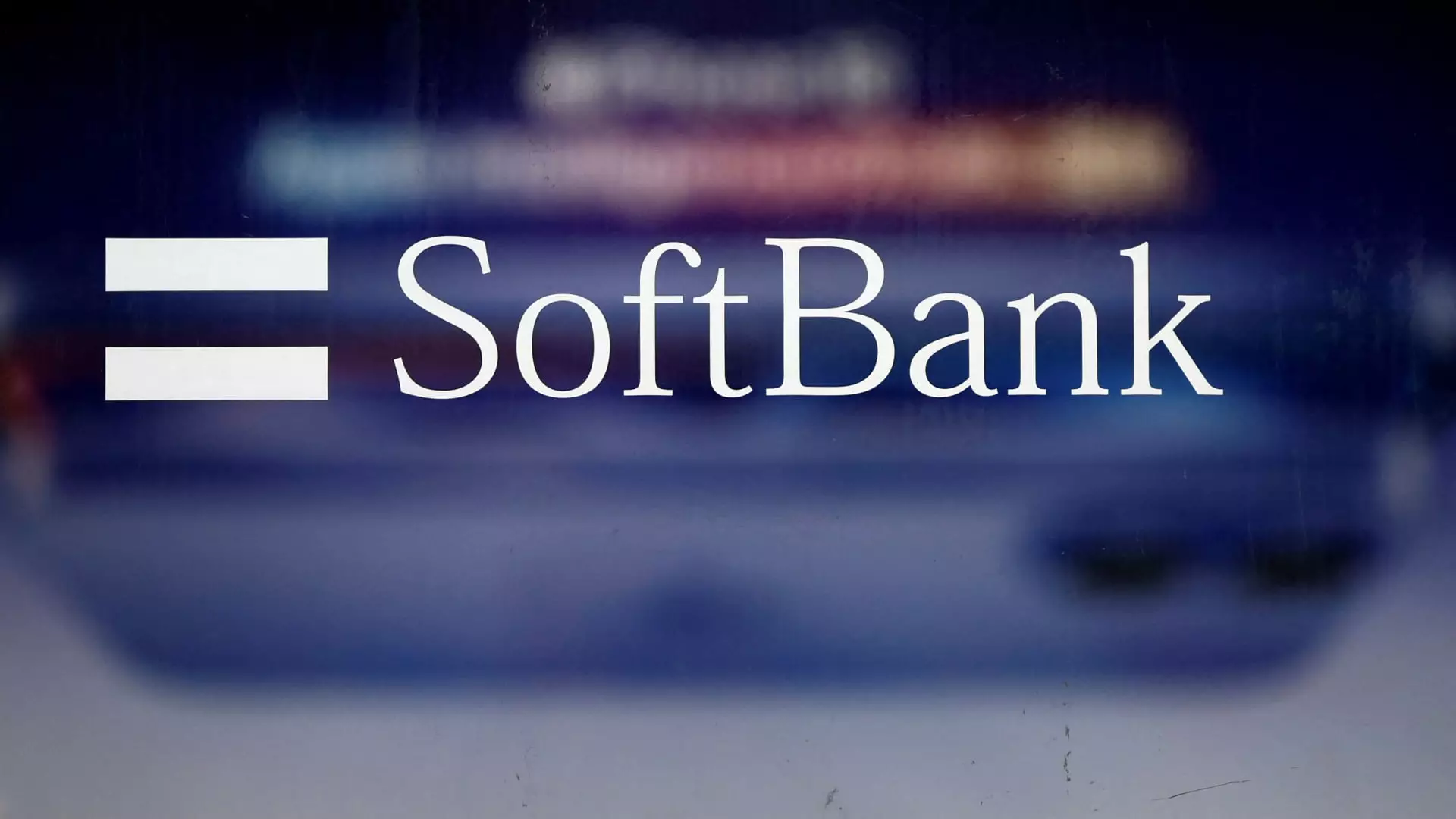SoftBank Group, the prominent Japanese conglomerate, has recently revealed unexpected financial troubles, posting a significant quarterly loss that has raised eyebrows among investors and analysts alike. The loss, fueled predominantly by underwhelming performance within its Vision Funds, highlights potential vulnerabilities as SoftBank navigates increasingly turbulent market conditions.
On the surface, SoftBank’s earnings report for the quarter ended December 31 has come as a shock. Instead of achieving a profit as forecast by many analysts, the company registered a staggering net loss of 369.17 billion yen (approximately $2.4 billion). In contrast, analysts had predicted a profit of about 298.53 billion yen. Such a pivot from anticipated profitability to an unforeseen deficit thrusts SoftBank’s ongoing financial narrative into a realm of uncertainty.
Moreover, revenue figures contributed to this disillusionment. SoftBank’s revenue stood at 1.83 trillion yen, marginally below the anticipated 1.84 trillion yen. These figures indicate a troubling trend: the company not only fell short of expectations but also demonstrated a consecutive decline in performance, particularly within its Vision Funds.
The Vision Funds, which have been at the forefront of SoftBank’s investment strategy—targeting technology-driven companies—reported alarming losses. For this quarter alone, the funds faced a staggering loss of 352.75 billion yen, undermining the previous two quarters where these funds had yielded positive returns. The broader Vision Fund segment, which takes various factors into account including administrative costs and currency fluctuations, reported a loss of 309.93 billion yen.
Among the notable declines, the fair value of SoftBank’s Vision Fund 1 company portfolio dipped by 2.8%, while Vision Fund 2 declined 3.7%. This decreasing trajectory is concerning, particularly as declines in stocks of public companies such as Ola Electric Mobility overshadowed some gains from others. Notably, while food delivery firm Swiggy saw a notable rise post its November 2024 listing, the overall impact was insufficient to counterbalance the widespread losses affecting the vision funds.
Faced with such downturns, SoftBank appears to be realigning its focus towards artificial intelligence—a sector that has shown robust growth and promises potential returns. The demand for AI technology, particularly in the realm of chips and data center GPUs, has been skyrocketing, and SoftBank aims to capitalize on this momentum.
Reports suggest that SoftBank is in the final stages of solidifying a monumental $40 billion principal investment in OpenAI, valuing the firm at an impressive $260 billion pre-money. Such a move underscores SoftBank’s intent to position itself as a major player within the AI landscape while also indicating a shift from its previous strategies that heavily emphasized varied tech investments without clear follow-through.
Additionally, SoftBank’s commitment to allocate $3 billion annually to fund OpenAI underscores its serious dedication to this burgeoning sector. This level of investment—accompanied by the establishment of a joint venture called “SB OpenAI Japan”—highlights a strategic pivot that banks on the robust growth of AI technologies.
This period could indeed delineate a watershed moment for SoftBank. While recent losses certainly paint a grim picture, its pivot towards AI signals an attempt to embrace emerging opportunities. However, the company must navigate these changes carefully, especially as it faces lingering skepticism from investors still reeling from the fallout of its prior high-profile investments.
As SoftBank takes these steps forward, the financial community will be closely watching its realignment strategy. Only time will tell whether this shift will yield the returns necessary to stabilize the company and revitalize investor confidence. The road ahead may be fraught with challenges, but if executed correctly, soft banking in the AI sector could herald a new chapter for the once-mighty investment giant.

Leave a Reply